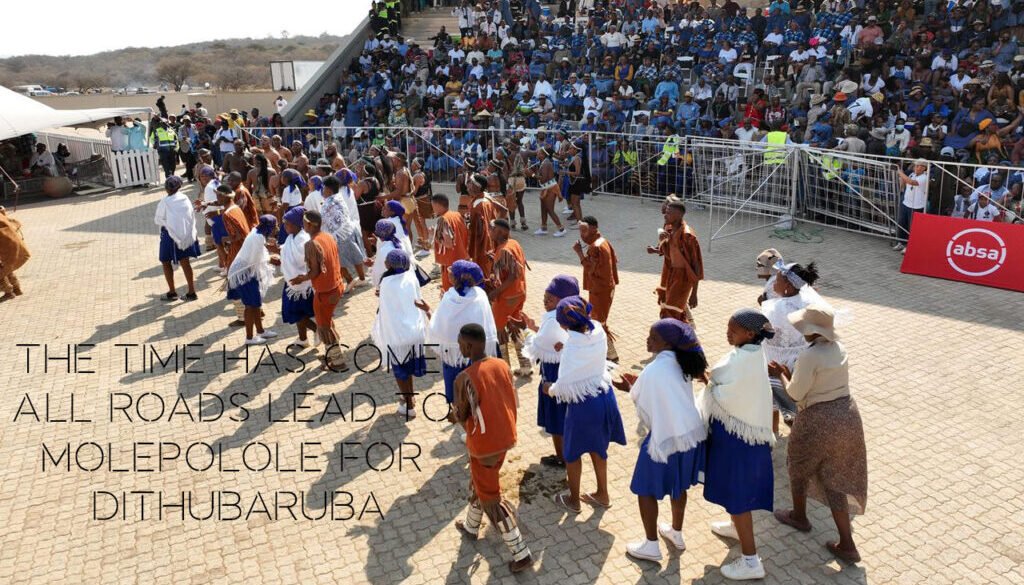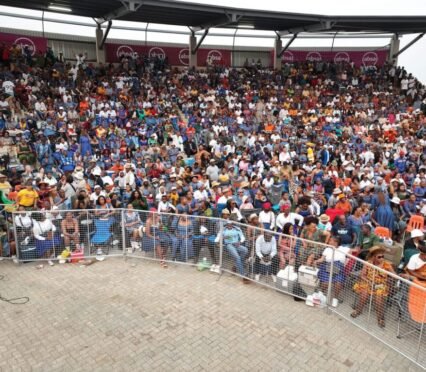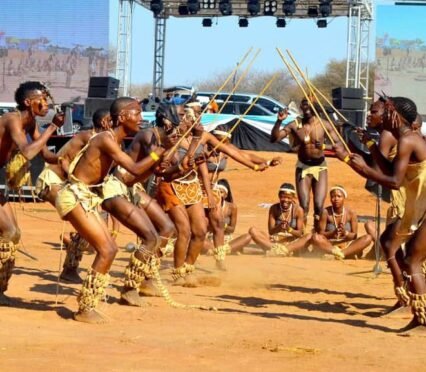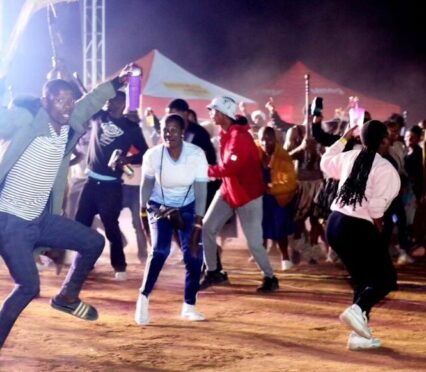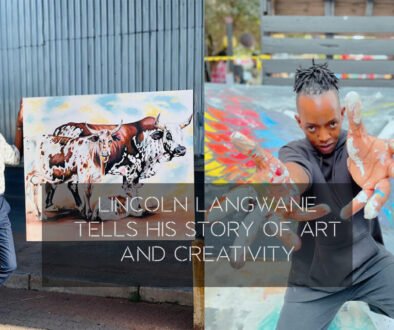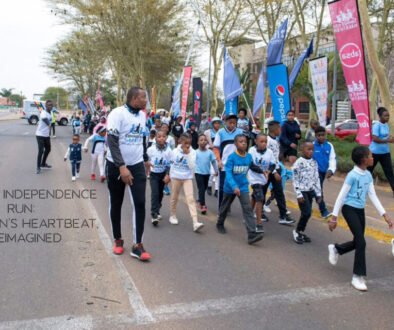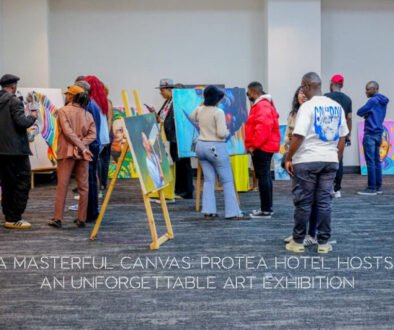Dithubaruba cultural festival on the pipeline
THE TIME HAS COME: All roads lead to Molepolole for Dithubaruba
Culture enthusiasts, culture without borders activists and fun lovers are getting ready to immerse themselves in the vibrant traditions of the Bakwena tribe. On September 6th, all roads will lead to Molepolole for the much-anticipated Dithubaruba Cultural Festival. This isn’t just an ordinary event; it’s a powerful display of community, unity, and a rich cultural heritage expressed through food, dance, and music.
The festival’s main goal is to showcase the unique Bakwena culture, and the spotlight shines brightly on its traditional food. A beautiful spectacle awaits as women, dressed in traditional Leteisi and Tjale (Doek), parade with Ditlatlana (baskets) on their heads.
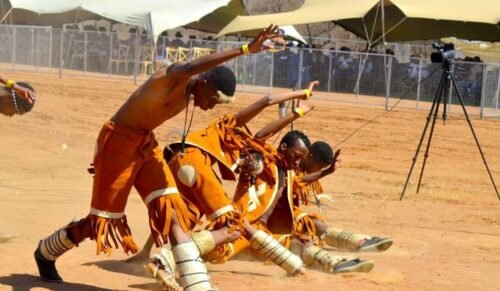
This parade, known as Dikgafela, is a colorful presentation of a good harvest, featuring organically grown foods like Mabele (sorghum), Morogo (wild greens), Dinawa (beans), and many others. It’s a feast for the eyes and a testament to the tribe’s connection to the land.
Meanwhile, men and boys will gather to prepare and serve traditional meat dishes, known as Nama ya Setswana. Prepared with great respect and love, the meat will be cooked in various styles, including Seswaa (pounded meat), Mokwetjepe, and Mokoto.
This gathering is more than just about food; it’s a vital cultural lesson for young men, teaching them the importance of providing for their families and community. The festival echoes the ancient roles of men as providers and hunters, a tradition shared by many cultures, including the San community.
The air will also be filled with the sounds of traditional music, including Dikwaere, a musical style especially famous in Molepolole and Mochudi. Various artists have been booked and sealed to perform, ensuring a lively atmosphere throughout the day. This year’s event is made possible with the support of Absa Bank, which has injected P250,000 over a three-year period.
Conceptualized in 2007, the Dithubaruba Cultural Festival was initially designed for the Bakwena tribe alone but has since embraced cultural diversity, welcoming various tribes to share their unique traditions.
The festival is a powerful reminder of history and an important platform for cultural preservation, as endorsed by Kgosi Kgari III, who says the event helps remember the forefathers who laid the foundation for them.
